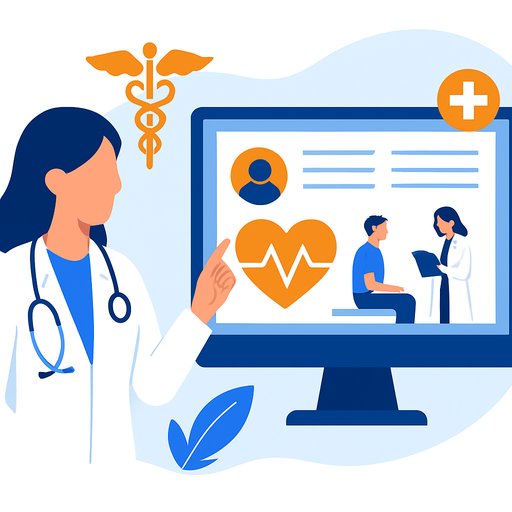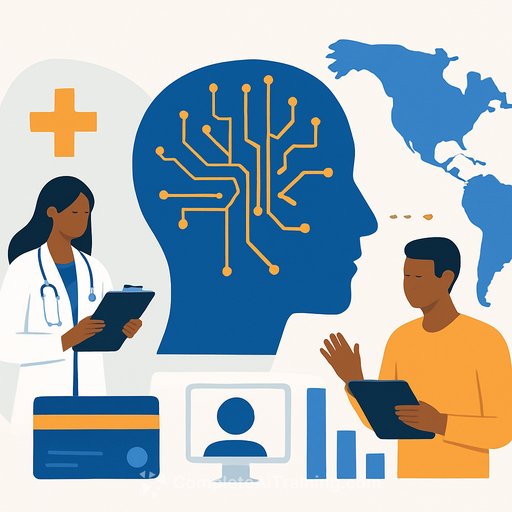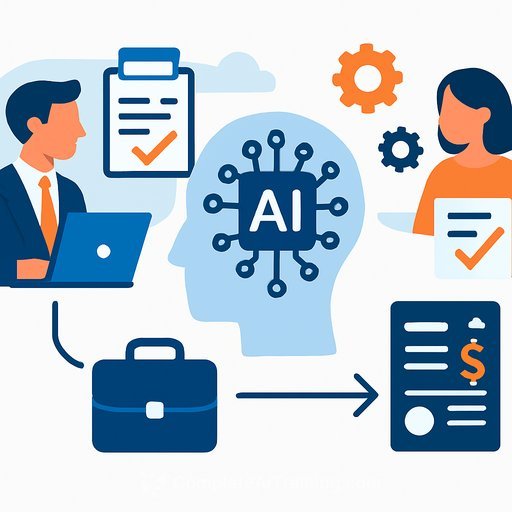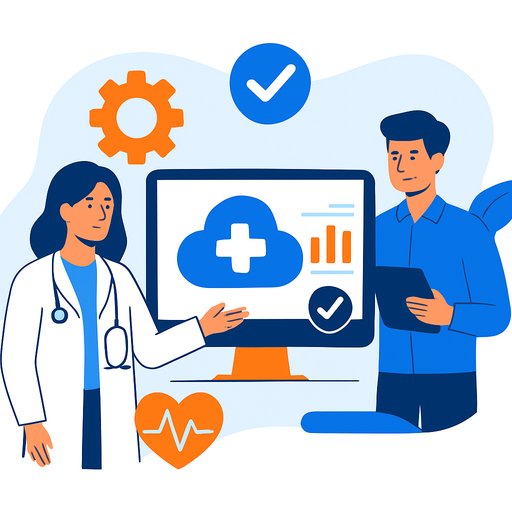ONC Certification of Oracle's AI-Embedded EHR Marks a Turning Point for Ambulatory Care
Oracle Health's next-generation electronic health record (EHR) has earned ONC Health IT certification and DEA EPCS compliance, clearing the way for U.S. ambulatory clinics to adopt it. Built on a secure, cloud-native architecture with AI embedded across workflows, the system is built to reduce administrative waste, simplify payer-provider interactions, and give clinicians more time with patients.
Unlike EHRs that bolt on AI tools, Oracle's approach integrates AI at the core. That matters for reliability, performance, and the ability to extend capabilities with agents or third-party models as needs evolve.
What's different about Oracle Health EHR
The EHR uses native AI to streamline common tasks and surface context that clinicians typically hunt for across multiple screens. Voice commands let clinicians request key details-recent labs, meds, vitals-without digging through the chart. The system is trained on clinical concepts and the relationships between them, supporting in-the-moment insights with explanation rather than black-box outputs.
- Personalized, streamlined workflows keep clinicians informed while reducing clicks and manual entry.
- Clinical reasoning across conditions, medications, labs, and care pathways enables more relevant recommendations at the point of care.
- An open design allows organizations to extend Oracle's agents, build their own, or integrate third-party models.
"For decades, EHRs that were supposed to support clinicians instead entangled them in administrative tasks… Our new EHR brings greater intelligence to the bedside, reduces friction between payers and providers, and nearly eliminates countless hours of data entry," said Seema Verma, executive vice president and general manager, Oracle Health and Life Sciences.
What the certifications mean (in plain language)
The ONC Health IT Certification Program validates that certified EHR technology meets federal requirements for functionality, security, and interoperability-helping protect sensitive information and support care coordination. It is not an endorsement, but it is a strong signal of technical readiness for regulated environments.
- ONC certification: Oracle Health EHR v25 achieved ONC Health IT Certification on Oct 3, 2025 (Certification Number: 15.04.04.1221.Orac.25.00.1.251003). This is an ONC-ACB certified Health IT Module. Not an HHS endorsement.
- DEA EPCS compliance: Oracle Health EHR v25.06 met DEA EPCS requirements on Oct 8, 2025, covering identity proofing, data security, and audit trails. Not a DOJ/DEA endorsement.
For context on the programs, see the ONC Health IT Certification overview at healthit.gov and DEA EPCS guidance at dea.gov.
Why this matters for clinicians, IT, and operations
- Clinicians: Less time hunting for data, more time with patients. Voice-driven retrieval, explainable suggestions, and fewer manual steps reduce cognitive load.
- IT and security: Cloud-native architecture with certified controls simplifies compliance, updates, and scalability.
- Revenue cycle and payer teams: Streamlined workflows and clearer clinical context can reduce friction in prior auth and medical necessity reviews.
- Pharmacy and compliance: EPCS certification supports secure electronic prescribing of controlled substances, reducing fraud risk.
Due diligence checklist before rollout
- Run a focused pilot in a few clinics and specialties; measure admin time saved, documentation quality, and clinician satisfaction.
- Stand up AI governance: data access policies, model update cadence, bias monitoring, and human-in-the-loop review for high-stakes tasks.
- Plan EPCS onboarding: identity proofing, token management, and audit trail procedures for prescribers and pharmacy partners.
- Validate interoperability: exchange with HIEs, external labs, imaging centers, and referral partners.
- Prep change management: role-based training for physicians, nursing, front desk, coding, and billing; quick-reference guides for voice commands.
- Define success metrics: chart closure time, clicks per visit, claim denials, prior auth turnaround, and patient satisfaction.
Availability and where to learn more
The Oracle Health EHR is available now for U.S. ambulatory customers. Full product details and regulatory documentation are available on Oracle's site.
Optional upskilling for your team
If you're planning an AI-enabled EHR rollout, targeted training can speed adoption and reduce errors. Explore role-based AI courses for healthcare teams:
Your membership also unlocks:





